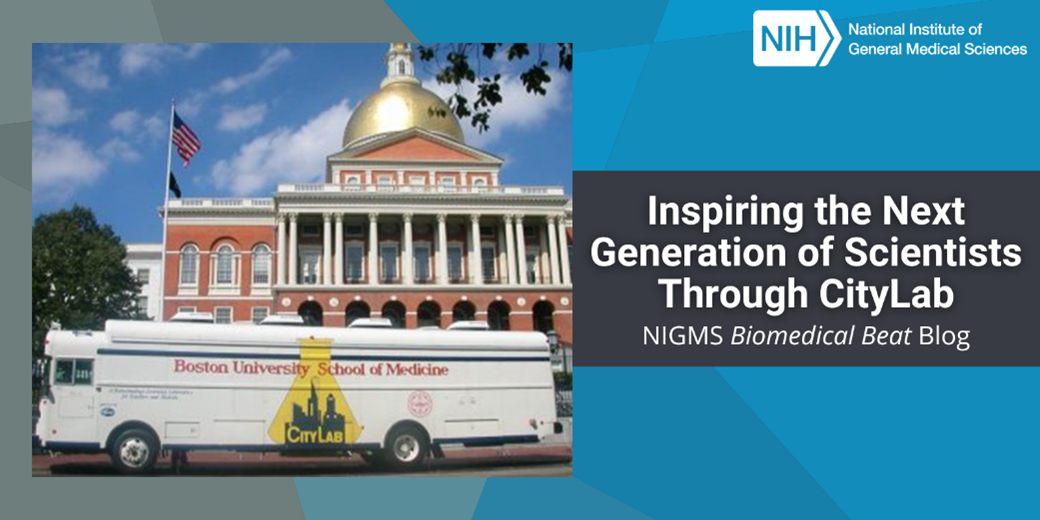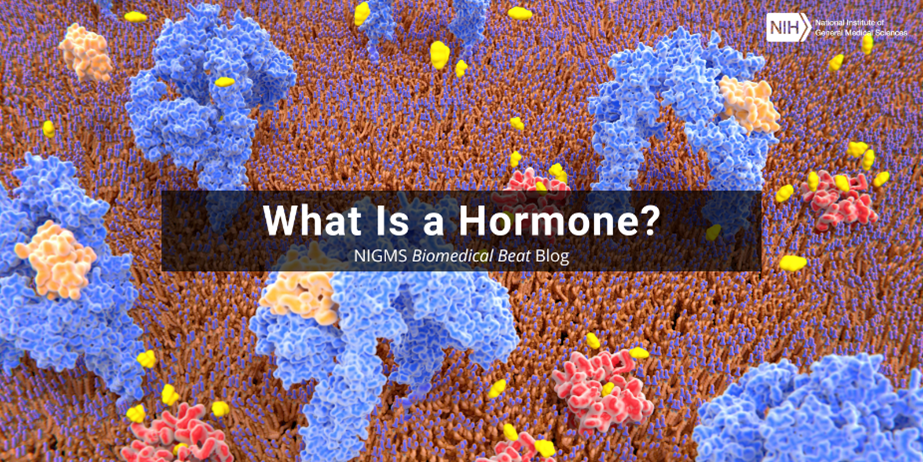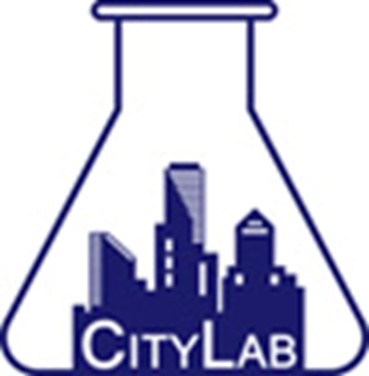
“Many of the students we work with don’t have access to a laboratory through their local schools. For them, CityLab is their first exposure to a laboratory environment—these are hugely important moments for these kids,” says Carl Franzblau, Ph.D., the founder of CityLab at Boston University (BU). CityLab was established more than 30 years ago as a science education outreach program for precollege students and teachers through a partnership between the Chobanian & Avedisian School of Medicine and the Wheelock College of Education & Human Development at BU.
“Since our first Science Education Partnership Award (SEPA) grant in 1991, our mission has been to inspire students to consider careers in the biomedical sciences and broaden the opportunities that are available to them,” says Carla Romney, D.Sc., the director of research for CityLab. Continuous SEPA funding since 1991 has allowed CityLab to fulfill its mission and provide students with state-of-the-art biotechnology laboratory facilities and curricula.
30 Years of CityLab
From its inception, CityLab has been a centralized learning laboratory for middle and high school students and teachers to visit for a day. Students perform biomedical science experiments—such as protein purification and quantification—and see firsthand how experiments in the lab generate data that can answer questions or solve a problem. CityLab’s model overcomes some of the biggest challenges to precollege science education, including access to essential laboratory equipment.
Over time, CityLab has adjusted its offerings to respond to the needs of the community. In 1996, CityLab created SummerLab, a weeklong immersion program for high school students, in response to requests for more opportunities that expand on previous CityLab experiences. As with day visits, students can work hands-on in the lab and learn common biotechnology techniques. SummerLab culminates in a poster session where students present what they’ve learned to their families, friends, and BU scientists. Multiple SummerLab sessions are held each year.
Although CityLab reached many local students in its early years, trips to the BU campus were cost prohibitive for a lot of schools. In response, CityLab introduced the MobileLab in 1998. This 40-foot-long laboratory-on-wheels allowed CityLab to bring equipment and expertise directly to students and teachers at their schools. The MobileLab parks outside local schools in Boston and nearby towns for several days at a time, which allows teachers to use the lab in any way that fits their schedules: for a whole day or for short intervals throughout the week. MobileLab inspired the creation of the Mobile Laboratory Coalition, a worldwide organization that fosters the creation of mobile laboratories to bring hands-on STEM experiences to students.
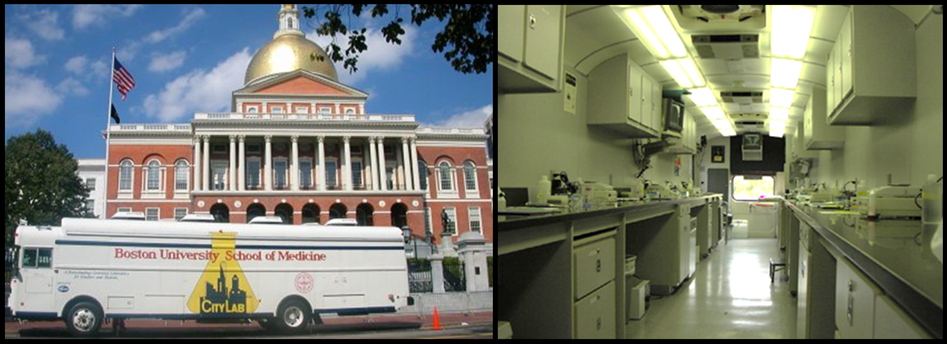
As of 2020, more than 70,000 students have participated in a CityLab day visit, an additional 50,000 have stepped aboard MobileLab, and 1,500 have taken part in SummerLab.
The Next Phase: “Mystery of the Crooked Cell”
To grab students’ attention, CityLab’s lessons are written as mysteries that need solving. “We needed to teach these lab techniques in the context of a compelling storyline so that our students really connected with the concepts,” says Donald DeRosa, Ed.D., a clinical associate professor emeritus and director of CityLab and MobileLab.
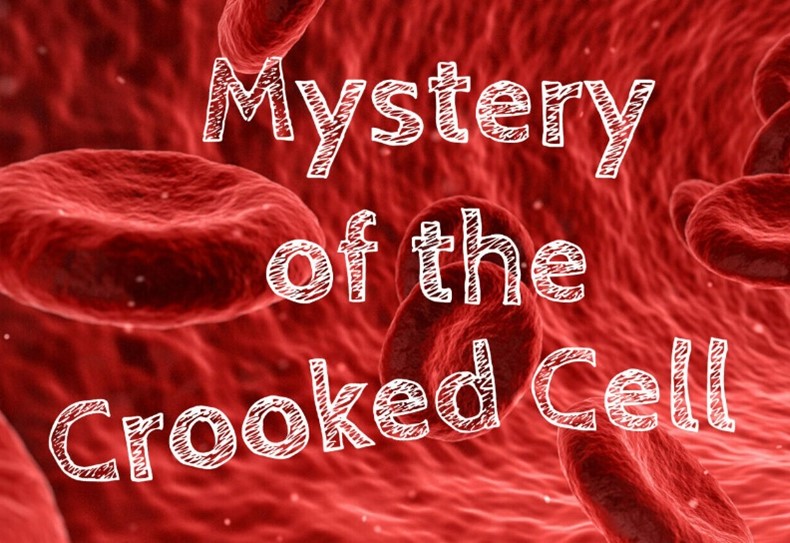
In the lesson “Mystery of the Crooked Cell,” for example, students explore the molecular basis of sickle cell disease through characters in a story. This inherited condition affects hemoglobin, the protein in red blood cells that binds to and delivers oxygen throughout the body. Students use electrophoresis—a lab technique that applies an electric current to separate proteins—to identify hemoglobin from patients with and without sickle cell disease. They thereby determine if a character in the story has the disease.
In the many years since “Mystery of the Crooked Cell” was written, many other science outreach programs have widely shared and adapted the lesson, and the CityLab team is gearing up to produce the next version. “Mystery of the Crooked Cell 2.0” will incorporate recent biotechnology advances, such as genetic engineering techniques that may be used to treat sickle cell disease. In addition, the team plans to embed a focus on socioscientific reasoning, which encourages students to approach scientific questions through a meaningful social context, seek out sources of bias in data, and consider historically undertreated and underdiagnosed populations when they think about how science affects their communities.
Unlocking the Inner Scientist
Whether through CityLab, SummerLab, or MobileLab, the entire CityLab staff finds joy in seeing students and their teachers get excited about science. “I’ve seen teachers get right smack in the middle of the activities and almost start pipetting with the kids,” Dr. Franzblau says. “For me, it’s not about students learning any one technique or fact; it’s about them learning the nature of the scientific process and how to think as scientists.”
These moments potentially lay the groundwork for a future in science. “Underlying all of this is our wish that students leave feeling good about themselves and confident in their ability to do science,” adds Dr. DeRosa. “We’re trying to demystify the process so that they see that they have it within themselves to be scientists one day.”
CityLab is supported by the NIGMS SEPA program through grant R25GM146240.


